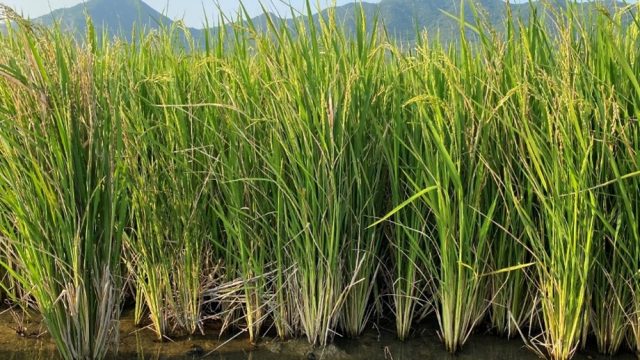The National Cereals Research Institute (NCRI), Badeggi, in Niger, disclosed that it has produced two flood-resistant rice varieties, known as Faro 67 and Faro 68, to mitigate the impact of floods on the production of the commodity.
This was made known to newsmen in Bida, Niger State, by the Executive Director of the Institute, Dr. Aliyu Umaru, who noted that the varieties can withstand submergence for two to three weeks, compared to the previous varieties that normally perish after two to three days of submergence.
NCRI was charged with a national mandate to conduct research into genetic improvement and improved production systems of rice, sugarcane, soybean, acha, beniseed, and castor , as well as to improve processing methods and the design or fabrication of agricultural implements for the mandated crops’ products.
FG Launches NRDS-ll to Improve Rice Production
The Executive Director called on the government to put in place water control structures in wetlands across the country, while urging farmers in the country to adopt appropriate varieties in flood-prone areas.
He recalled that the lack of water control structures contributed to the devastating effect of the 2022 floods, resulting in colossal losses for farmers across the country, pointing out that dry-season farming where water control structures are present is more profitable than wet-season or rain-fed rice production.
FG Trains, Distribute Input to South West Rice Farmers
“Irrigated agriculture outweighs rain-fed agriculture by far, the yields are also high, less prone to flooding; and the incidences of pests and diseases are also reduced.”
“Old irrigation schemes that had become dilapidated as a result of a lack of maintenance should be rehabilitated.” “Such schemes were established in the 1950s, but due to climatic extremes and other human factors, they are no longer able to control water,” Umaru added.



